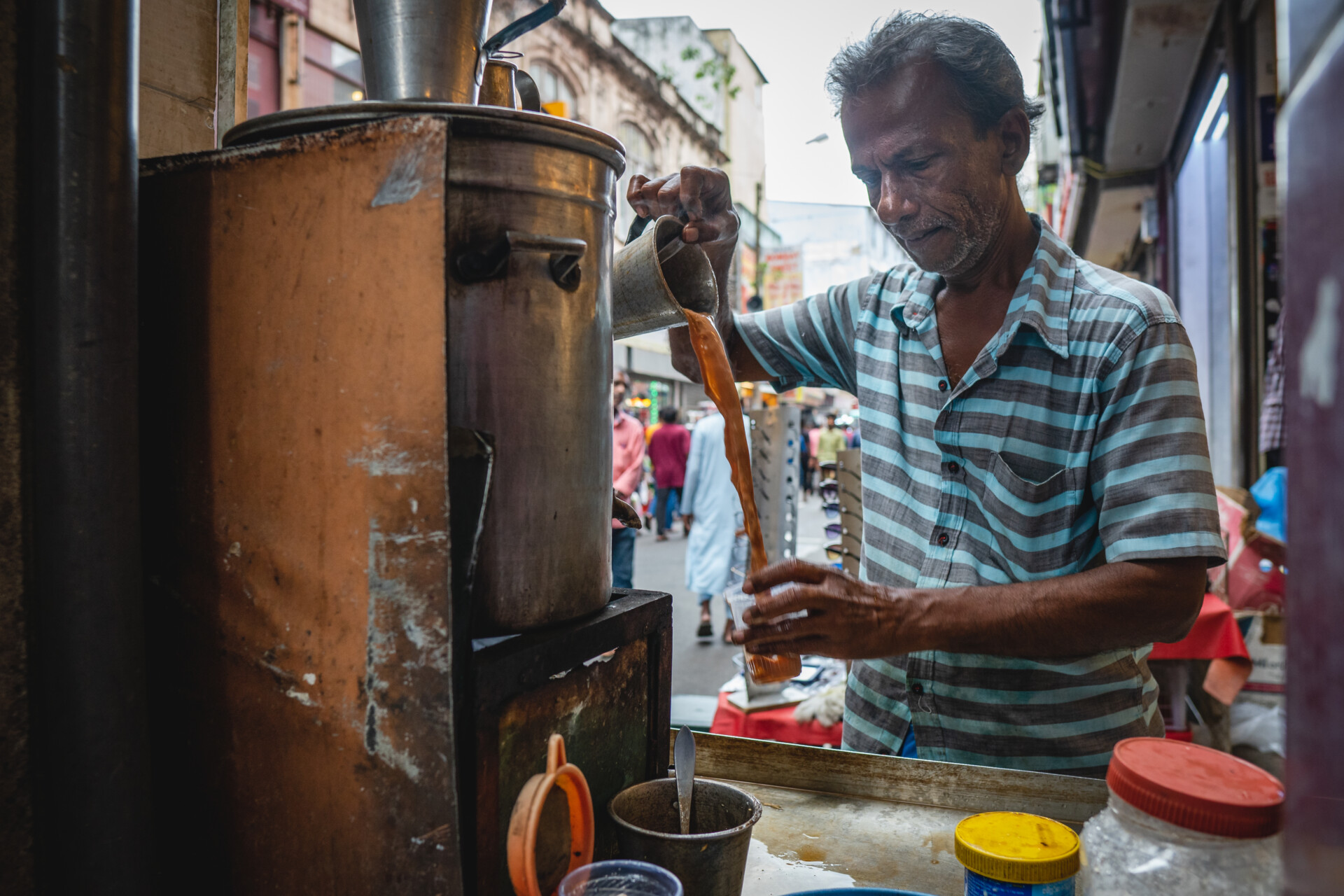Listen to this story
As a child, Sujeewan Sundaralingam woke up to his mother’s tea — thé or théthani as it’s called in Sri Lanka — made with milk powder every morning. It was creamy and thick and had a taste that the 33-year-old said he “just cannot explain.” The two-pound Anchor milk powder tin — a product of Fonterra, New Zealand’s largest company and a $14 billion revenue brand — was his mother’s most precious kitchen ingredient. She used to hide it on the top shelf, and when she wasn’t home, Sundaralingam would scoop out two tablespoons into his palm, mix it with sugar and devour it in one gulp, licking off the last bits.
Sundaralingam recalled his childhood memories as we sat down at his house in the capital city of Colombo. “My family never made tea with fresh milk. We always craved milk powder,” he said, a smile rising through his thick beard. Like his family, even my mother, who grew up on a cattle farm, never made tea with fresh milk. For her, indeed for many Sri Lankans, making tea with fresh milk is an alien concept. Nothing, my mother said, tastes as sublime as a cup of tea rich in milk powder. Create a free account to continue reading Already a New Lines member? Log in here Create an account to access exclusive content.



